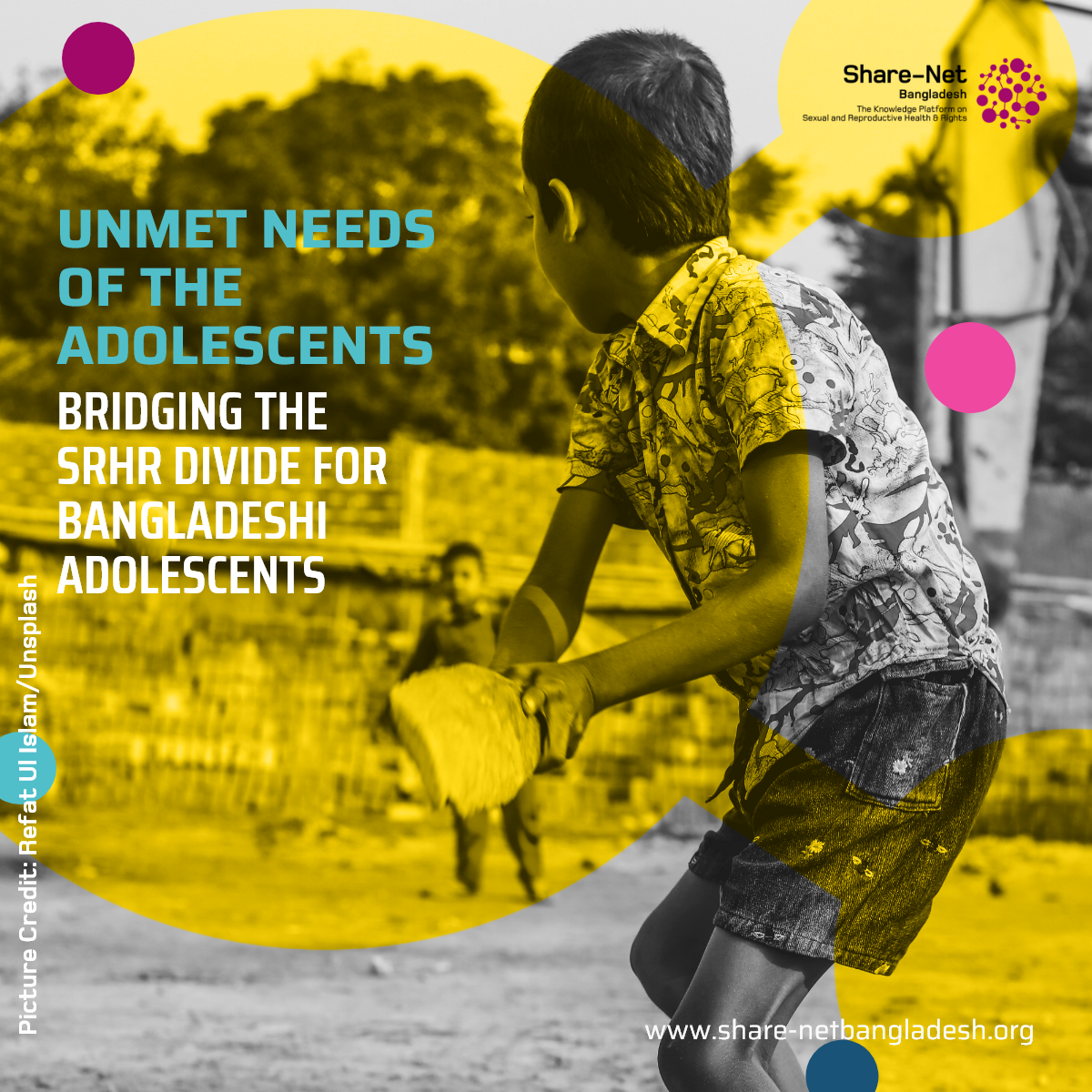Unmet Needs of the Adolescents: Bridging the SRHR Divide for Bangladeshi Adolescents
A recent report titled “Promoting Sexual and Reproductive Health Rights (SRHR) of Adolescents in Bangladesh: Policy Prospects and Challenges” was authored by a team of researchers aiming to explore the policy landscape and critical gaps affecting adolescent SRHR in Bangladesh. This comprehensive study highlights systemic issues, societal barriers, and opportunities for advancing adolescent-friendly health initiatives. The report provides actionable recommendations, focusing on strengthening policy implementation and addressing stigmas to promote sexual and reproductive rights effectively for Bangladesh’s youth.
Adolescents make up about 22% of Bangladesh’s population, yet their sexual and reproductive health (SRH) needs remain largely unmet. Despite progressive policies, challenges persist in addressing adolescent SRHR, particularly in areas of comprehensive sexuality education (CSE), healthcare access, and gender inequality.
The government’s National Strategy for Adolescent Health (2017–2030) highlights four priority areas, including sexual and reproductive health. However, societal taboos and misinformation limit its effectiveness. Studies reveal that early marriage and adolescent pregnancies—major concerns for SRHR—are prevalent, with nearly 51% of girls married before 18.
Key barriers include limited access to youth-friendly health services and stigma around discussing sexual health. Many adolescents lack accurate knowledge about contraceptives and face discrimination when seeking care. This gap is exacerbated in rural areas where healthcare infrastructure is weaker.
The report emphasizes the need for integrating SRHR education into the national curriculum and creating safe spaces for dialogue. Investing in healthcare provider training and community-based programs could bridge critical gaps in service delivery. Additionally, engaging adolescents in policymaking ensures their voices are heard.
Bangladesh must align its policies with global frameworks like the Sustainable Development Goals (SDGs), particularly Goal 3 (health and well-being) and Goal 5 (gender equality). Achieving progress requires a multi-sectoral approach that challenges harmful norms while prioritizing education, healthcare, and rights.
Expanding adolescent-friendly initiatives and strengthening implementation mechanisms can transform policy into action. Addressing these challenges is not just about improving health outcomes; it’s about empowering Bangladesh’s youth to shape a healthier, equitable future.
Access the full report from below.
Researchers:
- Md. Shoaib-Bin-Habib, Lecturer, Department of Law & Human Rights Varendra University, Rajshahi, Bangladesh
- Raisa Hossain Eshna, Lecturer, Department of Law & Human Rights Varendra University, Rajshahi, Bangladesh
- Imran Hosen, Department of International Relations, University of Dhaka, Bangladesh
Picture Credit:

